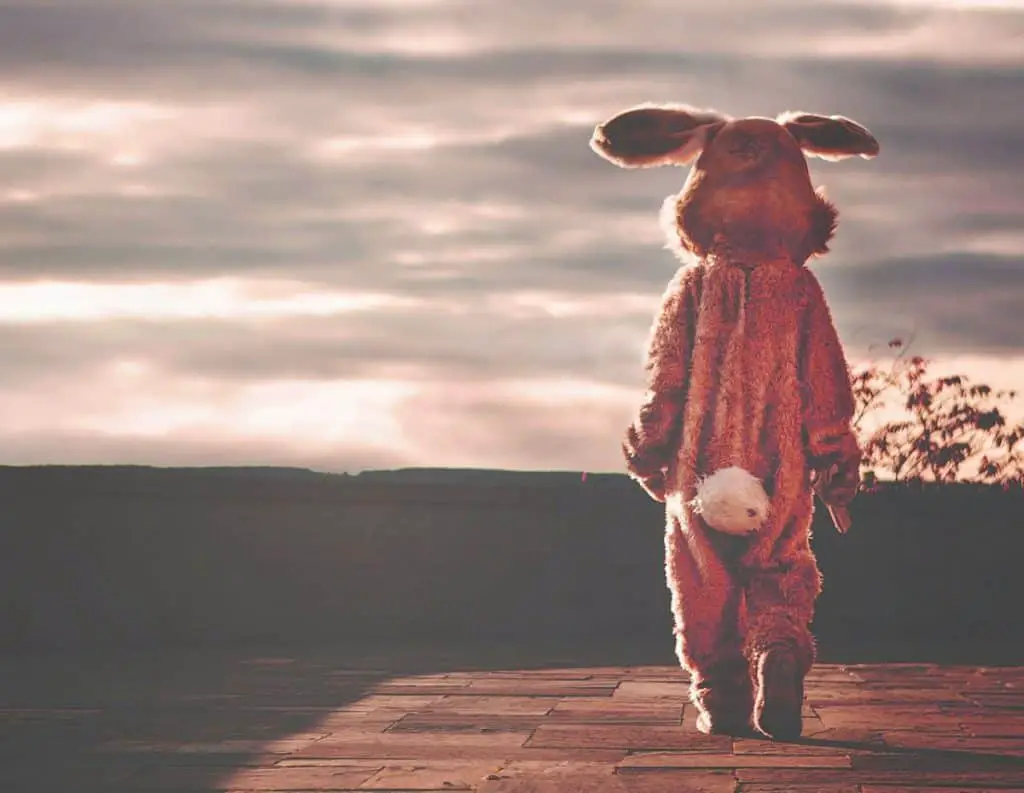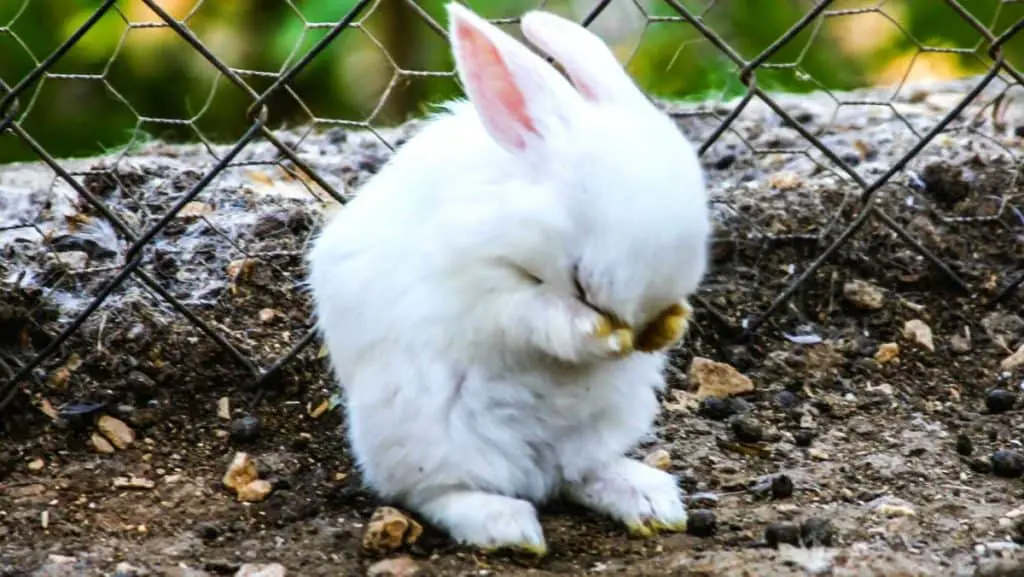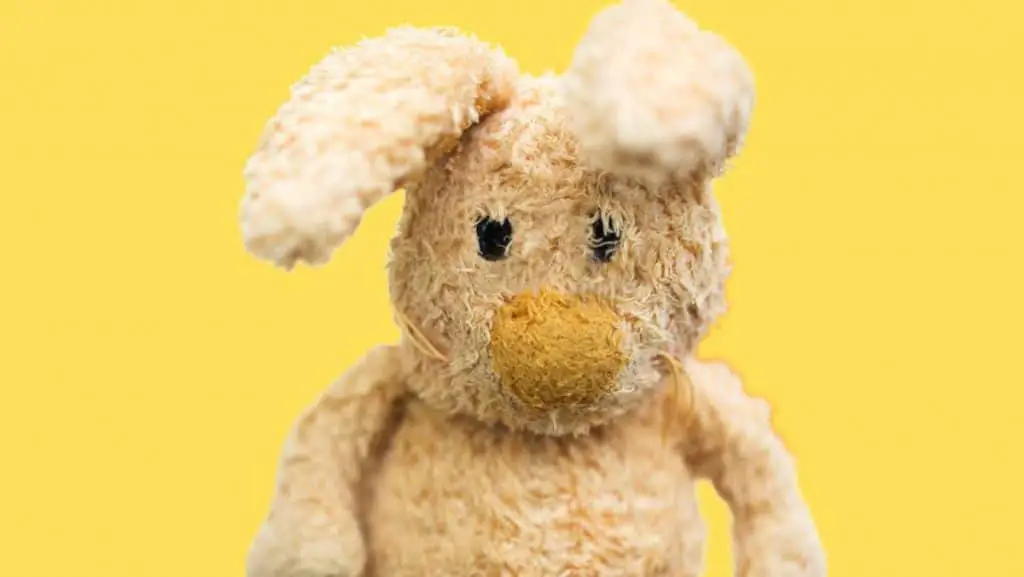Disclosure: We may earn money or products from the companies mentioned in this post.
Some pet owners, especially those who are new to taking care of rabbits, often fall prey to the misconception that rabbits can be left alone for days on end. Rabbits can get lonely, and a lonely rabbit is a stressed rabbit.
Pet rabbits get lonely when they are left alone for extended periods of time. Rabbits are social animals and they thrive when they have others to interact with. This could be another bunny friend, an animal friend of a different species, or you as their owner and friend.
When a pet owner has successfully bonded with their rabbit, the rabbit will consider their owner a part of their family and thus the companionship that results will make your rabbit live a more fulfilling life.
Social interaction is an essential part of rabbit ownership. Rabbits love to explore because their wild ancestors are great foragers and these traits still have echoes in their instincts today.
In this article, we’ll cover the most common questions about rabbit loneliness and its adverse effects, if any, on pet bunnies.
Here is a link to an article where we talk about how long a rabbit can be left alone.
Can Rabbits Become Lonely?
Pet rabbits can become lonely. In the wild, it is rare for you to see a lone rabbit. These wild rabbits always tend to band together or stay near an area where members of their colony forage. This is one of the main strategies for survival for prey animals. Domestic bunnies are the same.
It is, however, hard to identify lonely rabbits. Rabbits are experts in hiding their discomfort because being vulnerable in the wild could also be fatal to their survival. Thus, one would need to watch out for signs for when your rabbit is feeling lonely.
Rabbit body language is a sure way to determine if your rabbit is feeling sad, so a pet owner would need to be aware of the different body language that rabbits show.
Need to brush up on your bunny body language? Here is a link to the rabbit bunny language guide.
Also, it is important to remember that the body language of a lonely bunny is very similar to that of an ailing rabbit. So remember to always check and see if your rabbit is feeling sick rather than feeling lonely.
If there are other symptoms present such as pain then this should merit a vet visit. If you’re not sure whether your rabbit is feeling lonely or feeling sick then it is also better to take them to your bunny veterinarian as it is always better to be sure than to be sorry.

Why Do Rabbits Become Lonely?
According to the RSPCA rabbit handling advice, early socialization is crucial for a pet rabbit’s welfare.
Thus, rabbits who are not socialized early on in life will grow lonely and in turn, exhibit some problematic behavior. Rabbits are social animals and they thrive better when they grow up with another kind of their species. If this isn’t possible, the next best thing is for your bunny to spend regular time with you.
As a new rabbit owner, however, you should take into consideration the cost of owning a pair of rabbits before committing to this responsibility.
Loneliness in rabbits does not just mean having a companion. Other factors also affect an animal’s happiness. While it definitely goes a long way that they grow up with a companion animal, freedom is also important to their overall well-being. Two cooped-up rabbits are two lonely rabbits.
Are Single Rabbits Lonely?
Single rabbits or rabbits who live alone can easily become lonely, however, there are things that you can do to keep your pet bunny from getting lonely. These things include playtime with you, free-range time, and both physical and mental exercise.
We’ll go into greater detail about the things you can do to help a lonely rabbit in the section below.

9 Signs That Your Rabbit Is Lonely
Rabbits can’t tell you how they are feeling, so it’s our job to read our rabbit’s behavior to ascertain not just their physical health, but their mental health. Watch for these common signs of loneliness in rabbits.
1. Lethargy
Rabbits are normally boundless balls of energy, and lethargy is a general lack of energy or enthusiasm. It is unusual for a rabbit to not want to binky and play. When rabbits are not moving around they are considered lethargic.
Lethargy is a common sign of a lonely rabbit because they might be unmotivated to move around since they have no one to play with.
It is important however to know that lethargy is also a common symptom for rabbits who are sick. Thus, if your rabbit has some other symptoms such as hot/cold ears and sudden changes in bathroom habits then it is important that you first rule out any signs of sickness before assuming that your bunny is just lonely.
2. Attention Seeking Behaviors
A lonely bunny may try to get your attention so you’ll spend more time with them. Some of these attention-seeking behaviors are adorable, while others can be downright destructive:
Binkying
Without a doubt, binkying is the cutest way that a lonely rabbit might try to get more attention from you. Binkying is an adorable behavior where your pet rabbit will jump and twist while running around like a crazy bunny.
Binkying isn’t a behavior only exhibited by lonely rabbits, but it is a common one. However, if there are no other signs of loneliness, then it’s likely that binkying is just a sign of a happy bunny.
There are videos of this adorable behavior in this article about rabbit binkying.
Nipping
Bunnies may try to gently nip at you or your clothes to get your attention. This shouldn’t hurt and should not be mistaken as a bite; however, you will feel a certain pinch and that’s perfect for rabbits because it would turn your focus to them.
This isn’t good behavior for rabbits because if they learn to associate nipping with the reward of your attention, then they will learn to always nip you whenever they want your attention.
They can also result in nipping other pets and other family members if they want to be noticed. For children and other pets, nipping could hurt and they might retaliate and cause injury to your bunny.
If your bunny is starting to nip, you need to be sure to not encourage this behavior by responding with positive reinforcement of any kind. Instead, just ignore it. Instead, reward your bunny with attention before they nip…perhaps when they touch their head or nose to your hand.
Chewing
Pet rabbit loneliness can also result in excessive chewing to get your attention. Note here that I mentioned the word “excessive”.
Chewing is a natural behavior for rabbits. They chew a lot because they need to eat to sustain their energy and they also need to constantly trim down their teeth. But, they should only be chewing on things that they should be chewing.
However, loneliness comes hand in hand with boredom. Thus, lonely rabbits can chew on things like furniture, rugs, and electrical wiring to ease their discomfort.
Digging
Digging is also a very natural behavior for both domestic and wild rabbits. Rabbits in the wild dig to build the burrows where they live and raise their families.
This behavior can be seen more pronounced in female rabbits as they are the ones who are tasked with digging burrows when they are pregnant for their babies’ nests.
However, excessive digging is not a natural behavior, and digging in an inappropriate surface (such as your carpet) is never acceptable.
Lonely rabbits are also bored rabbits and bored rabbits will dig to release their frustrations. Rabbits can dig through your sofa, clothes, and living room carpet. Thus, this behavior should be discouraged as well.
We’re a big fan of a spray bottle (or water gun) for really destructive behaviors like digging on your carpet. That way you can discourage the behavior as it’s happening. Remember to never try to punish a bunny for past behavior. If you can’t correct the behavior as it’s happening, you can’t correct the behavior with training.
Thumping
When a rabbit stomps their hind legs this is called thumping. Rabbits usually thump when they feel something is off or when they feel annoyed.
Thumping can be a sign of loneliness as it shows your rabbit’s annoyance at always being left alone.
Remember that rabbits will always repeat behaviors that catch your attention. So if they thump and you pay attention to them, they will most likely associate this behavior with getting attention and will likely do it often.
Lack Of Appetite
Lonely rabbits who are also lethargic sometimes not only lose interest in playing and being active, but they might also lose interest in eating at all. This is dangerous for rabbits.
Rabbits need to be continuously eating to sustain the energy they need. In fact, rabbits tend to eat their weight in hay every day. Thus, having them lose appetite can be very detrimental to their health.
If you want to learn more about a healthy rabbit diet, I encourage you to read this article about a healthy rabbit diet which was written by a veterinarian and rabbit owner.
Just like lethargy, however, loss of appetite is also a sign of sickness in rabbits. Thus, if you notice that there are sudden changes in your rabbit’s bathroom behavior, if they scream if you touch some parts of their body or if they grind their teeth loudly then you should seek veterinary advice immediately.
3. Aggression
Sometimes pet rabbits may turn to aggressive behavior when they want attention.
Examples of this kind of rabbit behavior include biting their own ears or other pets’ ears or even biting you.
4. Hiding Or Being Withdrawn
Rabbits need time with their owners to become properly socialized and to avoid becoming lonely. Bunnies that are lonely and not properly socialized will naturally hide from you and choose to keep their distance when they can’t hide from you.
If your rabbits suddenly begin hiding in their cages when you are in a room then this is a sign that they do not trust you and are scared of you.
Do not try to handle a scared rabbit who is hiding, as long as they are hiding in a safe location. An animal’s instinct when they are threatened is to run or fight. Your rabbit has already chosen the first action. If you try to handle or touch them when they’re already hiding, they will feel trapped and a trapped rabbit can retaliate by kicking, biting, or scratching.
Also, rabbits who are terrified can die because of fright. Rabbits have a faster than normal heartbeat so if they are frightened this could cause their heart to beat faster and that can be fatal to them.
Instead, give your rabbit some space, and begin to resocialize them slowly and gently. Start by just sitting quietly by their cage until they will come out to eat and eventually take treats from your hand.
Once you’ve gained that much trust, you can begin to give your bunny some free-range time with you in the same area rewarding them for visiting you with treats or pets.
Hopefully, you have a rabbit cage that allows you to open a floor level gate so your bunny can come and go when under supervision. If you’re not sure what kind of cage I’m talking about, I encourage you to read this article about choosing and setting up and indoor rabbit cage.
5. Overgrooming
Overgrooming is when a rabbit pulls out their fur due to anxiety. Note that rabbits are very clean and excellent self-groomers and they will lick their fur to clean themselves. However, this should not lead to missing patches of fur.
This should also not be mistaken for nesting. Pregnant female rabbits, and even some female rabbits who aren’t really pregnant, will pull their fur to line their nests. Male rabbits should not be pulling their fur.
When rabbits overgroom this is because they feel anxious or bored and need more activities to ease their loneliness.
6. Pacing Back And Forth
Frequent pacing is a sign of loneliness in rabbits. If your rabbits keep on pacing in their cages then it means that they probably need more time out of their hutches to exercise.
However, rabbits can also pace even if they are out of their hutches. This means that they’re looking for companionship and you can use this time as well to bond and play with your rabbit.
7. Hunching
This is another tricky bunny body language to read because just like lethargy and lack of appetite, hunching is also a sign of a rabbit that is ill. At the same time, hunching is also a sign of a lonely rabbit.
When a rabbit hunches they pull their legs very close to their body. Their head is usually down and their eyes are closed.
Relaxed rabbits tend to flop on their sides or splay out on their tummies with their legs stretched out. When a rabbit hunches it means it is uncomfortable in its surroundings or it is in pain. If you think your rabbit might be sick, then you should rule out that possibility first before trying to play with your lonely bunny.
8. Small Poop
Rabbit poop is usually the size of a raisin or a pea. However, if a rabbit does not eat or loses its appetite then this would also significantly reduce the size of its poop. Rabbit poop is made of undigested hay and fiber, so less hay means less fiber to digest.
A rabbit suffering from loneliness will eat less, and that means they’ll poop less often, and when they do they’ll have small poop.
9. Overeating
We humans are not the only animal that has a tendency to overeat when bored. A lonely rabbit sometimes overeats which can lead to you having a fat pet bunny.

How To Help A Lonely Rabbit
As bunny lovers, we of course find it stressful when our rabbits are lonely. However, just because a rabbit is lonely now doesn’t mean that they can’t soon become a contented and happy rabbit.
The key to helping a lonely rabbit is to make sure it has three things: 1) Friends, 2) An Engaging Environment, and 3) Is Healthy. Friends can be other animals or you as their owner. Rabbit toys and games will keep your pet bunny engaged. And a quality rabbit diet and a good rabbit doctor will keep your rabbit healthy.
Now let’s go into some more specific tips to help a rabbit suffering from loneliness be happier.
6 Tips To Make A Lonely Rabbit Happier
1. Bond With Your Rabbit
The first rule that all pet owners should follow is to create a bond with their pets. After all, we don’t keep pets as mere house decorations. We keep pets, including pet rabbits, for companionship and joy.
When you take the time to bond with your new pet bunny, you’ll form a stronger friendship with your pet and you’ll get more joy from that relationship. Just as importantly, your bunny will get the same advantages.
Bonding with a pet rabbit is a slower process than bonding with a dog. Rabbits are prey animals, and as such, they are constantly on the lookout for rabbit predators. For most rabbits, humans look a lot like predators until they learn differently.
To bond with your new rabbit, just spend time with them while offering them treats and gentle touches. Avoid picking up a new rabbit until they grow to trust you.
How difficult it is to bond with your bunny depends a lot upon where you got your pet bunny. Adopted rabbits who have been abused or neglected will be more averse to interaction and can be more skittish. But, even these bunnies will learn to trust and eventually bond with you.
2. Free Range Your Rabbit
Free-ranging is when you give your rabbit a larger space to roam freely. Some people give their pet bunny access to their whole house or turn their entire apartment into a bunny apartment.
Allowing your bunny to free-roam at least part of the time, can great step to having a rabbit that is content and happy. While free-roaming doesn’t replace having a friendship for your bunny, it can help a single bunny find peace with their living arrangement.
However, I do not recommend free-ranging your rabbit immediately. Your pet would first need to learn the boundaries of the home. They should be able to pee where they should be peeing (in the rabbit litter box!). You also need time to bunny-proof your home to avoid having your pet rabbit chew on things that can be toxic to them.
3. Get Another Bunny
Most pet rabbit owners believe that rabbits thrive when part of a pair of rabbits. Here at Rabbit Pros we agree with this belief as it simply makes sense because rabbits in the wild live in colonies rather than alone. A lone rabbit is an easier target for a predator, so they band together to protect themselves.
However, before you decide to get a second rabbit, there are a few things you should consider.
First, it’s sometimes hard to get rabbits to bond with each other. Once a rabbit is used to living alone, it can become quite territorial. This means that they can really fight when first brought together. This is less of an issue when both rabbits have been sexually altered (either spayed or neutered). Because of this reduction in territorial behavior and because un-altered rabbits can have up to 168 baby bunnies every year, we recommend only fixed rabbits live together.
When we introduce two new rabbits, we prefer to rig up a living arrangement where the bunnies are separated by a solid wall of wood. We want them to get used to smelling each other before they even see each other.
In time, we’ll remove the solid wall and just separate them by a wire panel. When they are used to seeing each other, then we’ll finally bring them physically together.
Next, you need to consider the cost of owning a second rabbit.
Getting a single rabbit costs an average of $306 with the rabbit cage and other essentials. While getting a second rabbit doesn’t cost twice as much, but it does cost significantly more.
You’ll at least need a separate cage for the bonding stage of bringing a new bunny into your home. We keep a wire dog kennel in the garage that we can bring inside for just such occasions. We just line a few sides of the cage with a cut-to-size plyboard that can be easily removed when the time is right. { Click here to see the one we like on Amazon. >>> }
Then you have to consider the cost of the neutering or spaying procedures ($205 on average), their food intake, and perhaps a second bunny litter box.
Add it all up, and having two rabbits can be costly.
However, if you can’t afford another bunny this also does not mean that your rabbit is doomed to live a lonesome life. If you form a strong bond with your rabbit, you can easily fill this absence in your bunny’s life and they will willingly provide you with companionship and love.
4. Provide Exercise
Rabbits need regular physical activities to remain healthy and happy. A lazy rabbit is soon a fat rabbit.
If you are not free-roaming your rabbits, make sure to get them a hutch big enough to hold them. I have an article that gives you a full guide on how to select and build an indoor rabbit hutch.
5. Provide Mental Stimulation
Aside from physical activities, rabbits also need mental stimulation. You can provide this by giving them rabbit toys/chew toys.
You can also simulate their activities in the wild such as foraging and digging by providing them with hanging hay or digging boxes. This will tire them out but rabbits like working and a tired rabbit is a content rabbit.
6. Be Patient and Stay Consistent
This Is probably the most important tip to help your lonesome rabbit.
Pet ownership entails responsibility, patience, and consistency. Like all pets, rabbits can be a challenge. However, we obviously believe that the advantages of having a pet rabbit outweigh the challenges.
Pet rabbits are more like cats than dogs. You’re going to have to earn their trust and friendship. Just because your new bunny seems lonely or sad doesn’t mean it’s always going to be that way.
Do not rush the process! Instead, take it one day at a day and enjoy the little changes from day-to-day.
I promise you, being a bunny owner is one of the most rewarding experiences ever.
Can Pet Rabbits Die from Loneliness?
Rabbits can die from loneliness but it’s very uncommon and is seldom the sole cause of a pet rabbit’s death. The only time we’ve ever experienced a rabbit dying of loneliness is when it lost a companion to death. In this case, it seems like they died of grief, not from beingly lonely.
It’s also noteworthy that a lonely pet rabbit can become stressed and lose its appetite. Both are conditions that can lead to death.
Other Pets To Help A Lonesome Rabbit
Other pets can help a lonely rabbit feel less lonesome, provided that your bunny and their other animal have bonded and become friends. We’ve seen rabbits living with chickens, dogs, cats, and even ducks. In each case, the two species bonded and kept each other company so neither was lonely.
You’ve probably even seen some videos where rabbits are pals with other house pets; but just in case you haven’t, here are a few super cute videos!
I hope these tips and tricks for identifying and helping a lonely rabbit have made your bunny’s life a little better and your responsibility of caring for them easier. If we missed any tips, please let us know in the comments below.
